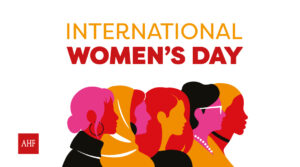A sexual assault is an event that can affect those who experience it in very different ways. Fear, sadness and even guilt are among the many feelings that can arise with violence of this type.
The long-term psychological consequences have been identified, although it is important to remember that each person is different and experiences the processes in a different way. But among so many uncertainties related to an event like this, one thing is certain: rape is a medical emergency and, as such, health institutions, both public and private, should be aware of the care protocol to follow.
Fortunately, there are several treatments that can prevent the consequences of rape from spreading to physical health, such as forced pregnancy or the transmission of sexually transmitted infections (STIs).
Care protocol
Rape is prosecuted in different ways in many countries, but the global trend is that medical care for an event of this type does not require a legal complaint to be provided.
This is important, as many rape victims do not immediately go to the authorities for a variety of reasons. With this criterion, they can approach to request medical attention without the need to go through the legal process that a complaint implies.
As the document Medical care for raped persons, from the Mexican Ministry of Health, points out, forced intercourse is almost always violent, which increases the risk of acquiring one or more STIs, since these penetrate more easily through a tissue hurt.
For this reason, when a person, whether a man or a woman, comes to a health service to ask for help after a sexual attack, the medical staff should start by screening them for:
- HIV
- Hepatitis B
- Pregnancy, in the case of women
If these tests are negative, it is necessary to start prophylactic treatments, that is, preventive, STI and pregnancy. Such treatments have a good rate of effectiveness when administered in the first hours after the violent event.
Preventive medications
Some of the most common STIs can be avoided by taking preventive treatment. For example, trichomoniasis, gonorrhea, chlamydia, or Treponema pallidum can be prevented with single-dose medications, either ingested or injected.
Hepatitis B is not an exclusively sexual infection, but it can be transmitted through this route. This virus is also preventable if a scheme with the commonly used vaccine is started within 72 hours after the attack. The complete schedule consists of three doses (the second at 2 months and the third 4 months after the second).
HIV is another STI that is prevented with post-exposure treatment. The period during which certain antiretroviral drugs are taken consists of 30 days, and it is important to complete it to obtain its full effectiveness.
Finally, it is also possible to avoid a pregnancy as a result of this fact. Emergency contraception has been in place for several years in these cases, and treatments of just one or two pills are available in most countries and greatly reduce the chance of pregnancy.
The care protocols indicate that, if the woman was pregnant prior to the sexual assault, she can be given most of the treatments to prevent STIs, such as HIV and hepatitis B. The only exceptions would be those medications that are specifically contraindicated in pregnancy.
The importance of follow-up
A person who has suffered rape needs to have a follow-up after this first contact with the medical service, to continue monitoring their health and complete the treatments that were administered.
In addition, repeat screening for STIs such as gonorrhea and chlamydia (at three weeks), syphilis (at six weeks), and hepatitis B (at six weeks) is also important. As for HIV, it is necessary to repeat the test at three and six months, at least.
Thus, seeking medical attention as soon as possible after a sexual assault can prevent many health problems resulting from that violent event. That is why it is very important to spread knowledge about this care protocol, so that more people know that medical care is independent of a legal process.
Remember that at AHF Latin America and the Caribbean we work every day to bring HIV services closer to people who need it. If for any reason you want to do an HIV screening test, we do it here for free. Locate our nearest center in your country.






